The Caffeinated Gear Team
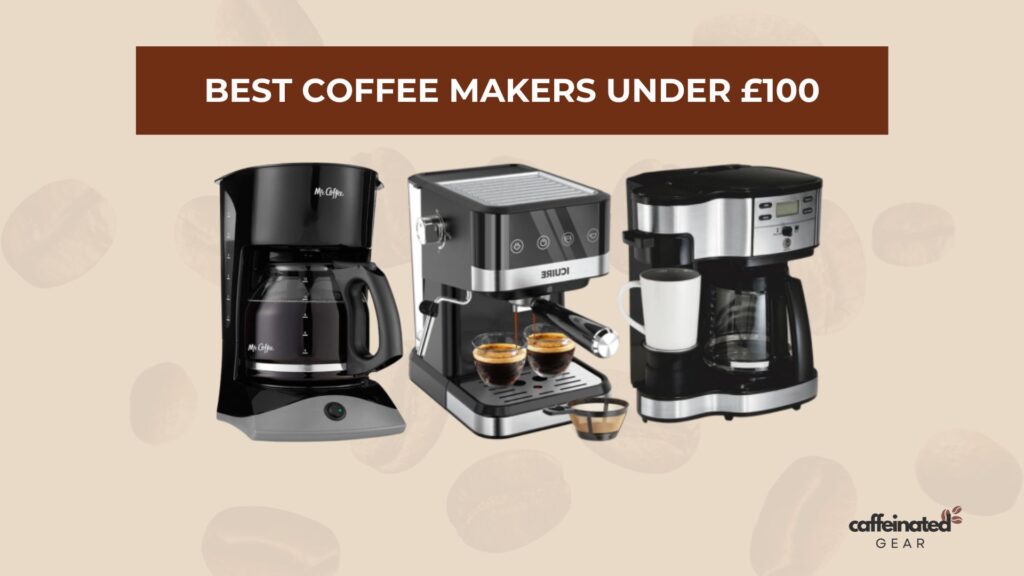
Finding the perfect coffee maker isn’t just about price—it’s about matching your brewing needs with the right machine.
While £100 might seem limiting, you’d be surprised at the quality brewers available within this budget.
Of course, this price point does rule out certain options like full-featured espresso machines and high-end automated systems.
Our team of certified baristas and coffee experts has thoroughly tested dozens of coffee makers to bring you this comprehensive guide.
We’ve broken down our findings by category: drip coffee makers, single-serve machines, French presses, and budget-friendly espresso makers.
A quick note about espresso machines in this price range: while they exist, we’ll explain why they might not meet the expectations of serious coffee enthusiasts.
What makes this guide different?
Rather than giving you a generic “top 10” list, we’re sharing detailed insights about each coffee maker’s strengths and limitations.
Because here’s the truth: there’s no universal “best” coffee maker—there’s only the best one for your specific needs.
When it comes to drip coffee makers, £100 sets certain limitations—particularly for specialty coffee brewing.
If you’re new to coffee appreciation and terms like “specialty coffee” sound unfamiliar, don’t worry—we’ve got excellent options for you too.
For those passionate about specialty coffee, we typically recommend investing in SCA-certified brewers.
Check out our comprehensive best drip coffee makers guide for our top SCA-approved recommendations.
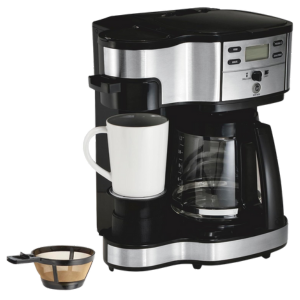
This versatile machine impresses with its massive 96-ounce brewing capacity at a budget-friendly price point.
But volume isn’t everything—what caught our attention during testing was its clever single-cup brewing feature.
Unlike typical 2-in-1 machines that combine traditional brewing with Keurig-style pods, this model integrates a smaller drip section specifically for quick single servings.
The programmable timer function lets you wake up to freshly brewed coffee, working with both the carafe and single-cup options.
Just note: while some product images show a travel mug, it’s not included in the package.
Want to keep your coffee hot on the go?
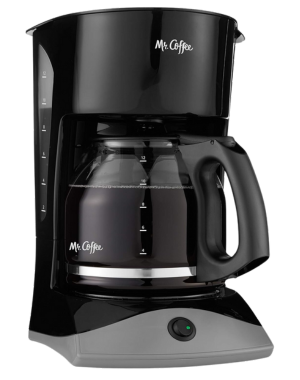
This budget-friendly classic has earned its place in countless kitchens worldwide.
While it won’t compete with premium brewers, our testing showed it delivers reliable performance for its modest price point.
For specialty coffee enthusiasts working with a tight budget, we’d recommend considering either the Black & Decker or Ninja models below.
Alternatively, for outstanding coffee under £100, the Aeropress (covered in our single-serve section) offers exceptional value.
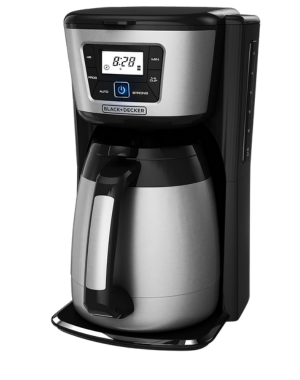
Here’s an interesting bit of coffee history: Black & Decker entered the coffee market after acquiring General Electric’s small appliance division in the 1980s.
While they’re better known for power tools, our testing revealed some surprisingly thoughtful features in this brewer.
The stainless steel thermal carafe stands out at this price point—most budget machines rely on glass carafes.
But what really impressed our team was the Evenstream showerhead, which ensures uniform coffee ground saturation—a feature typically reserved for higher-end specialty brewers.
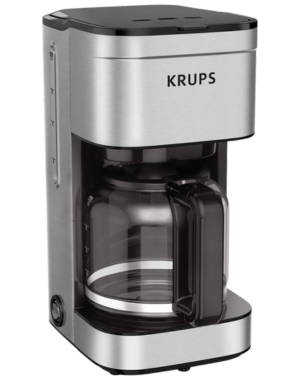
This straightforward brewer focuses on simplicity.
During our tests, we found it delivers consistent results without unnecessary complications.
The one-hour warming plate keeps coffee hot, though we recommend transferring to a thermal carafe instead—our experience shows that prolonged heat exposure increasingly makes coffee bitter.
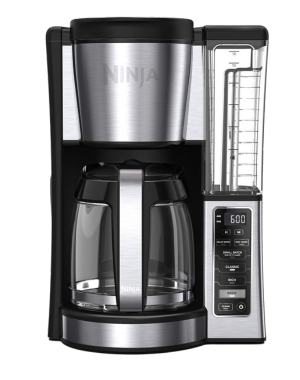
While this isn’t Ninja’s SCA-certified model, it impressed us with features uncommon at this price point.
The advanced boiler system consistently delivered hotter coffee than comparable models in our tests.
The programmable delay brew feature proved remarkably user-friendly.
However, we noticed some durability concerns with the warming plate in long-term testing.
Our professional recommendation? Skip the warming plate entirely and brew smaller, fresher batches instead.
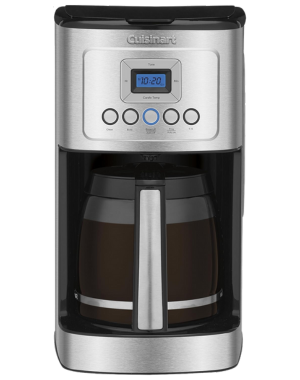
Let’s address something interesting we discovered during testing: despite being marketed as a 14-cup brewer, it uses a 5-ounce cup measurement—quite small by modern standards.
For comparison, their SCA-approved model (outside our price range) uses an 8-ounce standard.
Marketing quirks aside, our temperature tests showed consistently hot brewing—a common weakness in budget coffee makers.
The extended 3-year warranty also adds value to this reliable performer.
Looking for the perfect single-serve coffee maker? Our team of certified baristas and coffee experts has spent countless hours testing these machines. While many associate single-serve with pod systems, we’ve discovered some brilliant alternatives that deliver superior coffee quality without sacrificing much convenience.
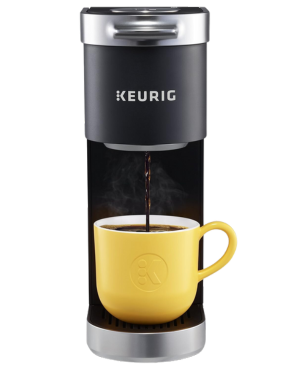
During our extensive testing, we found the K-Mini Plus offers unmatched convenience for coffee drinkers who prioritise speed and simplicity. While we typically favour other brewing methods for maximum flavour extraction, we understand why Keurig dominates the American market – with roughly 40% of households owning one of their machines.
The single-cup water tank design might seem like extra work, requiring a fresh fill for each brew. However, our testing revealed an unexpected benefit: better hygiene. This design prevents the water stagnation issues we’ve noticed with larger reservoir systems in other pod machines.
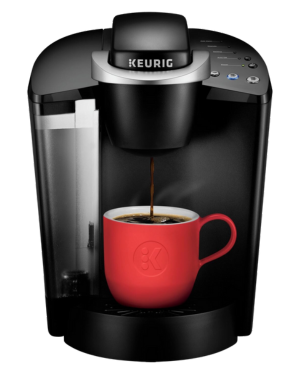
The K-Classic represents what most people picture when thinking about Keurig machines. After comparing it with earlier models, we noticed significant improvements in the brewing mechanism. For those who want a traditional pod machine with a generous water reservoir, this updated version deserves consideration.
Want to explore more Keurig options? Check out our comprehensive Best Keurig Coffee Makers guide.
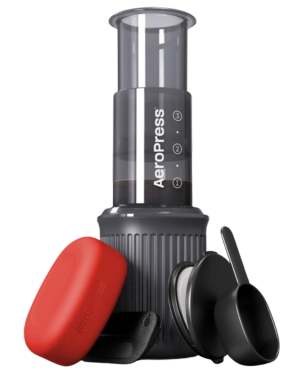
When our team needs to recommend a single-serve coffee maker under £100 without any qualifications, we consistently choose the Aeropress. Through hundreds of brew tests, we’ve found it delivers exceptional coffee quality, remarkable versatility, and brilliant value – you could buy two and still have change from £100.
Don’t let the brewing championships and coffee geek enthusiasm intimidate you. In our testing, we discovered that following the basic instructions produces fantastic results. The inventor, Alan Adler, designed it for everyday coffee drinkers, not just specialist baristas.
The standard method couldn’t be simpler: place chamber on cup, add coffee, pour hot water, and press. Clean-up takes seconds – just eject the coffee puck and give it a quick rinse. For those interested in exploring further, the inverted method offers different flavour profiles, but it’s completely optional.
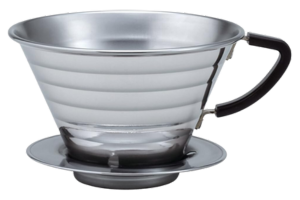
Our barista team rates the Kalita Wave as one of the most forgiving pour-over drippers available. Unlike its popular rival, the Hario V60, the Wave’s design allows for more consistent results without requiring precise pouring technique.
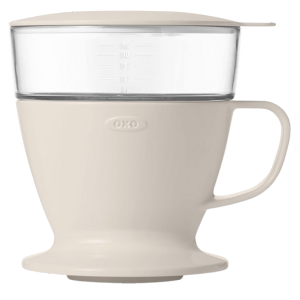
In our budget-friendly category, this clever little brewer stands out. At its current price point, you could outfit an entire office for under £100. The raised sides create a mini reservoir that controls water flow automatically – perfect for those mornings when you can’t focus on precise pouring techniques.
While coffee enthusiasts might miss the control over brewing variables, we’ve found it consistently produces good results for its price point. Its lightweight design also makes it an excellent travel companion.
For more detailed insights, check out our complete guide:
French presses often get overlooked in the speciality coffee world, but our testing reveals they’re capable of producing exceptional coffee when used correctly. Most brewing mistakes – like bitter coffee or grounds in the cup – come down to technique rather than equipment limitations.
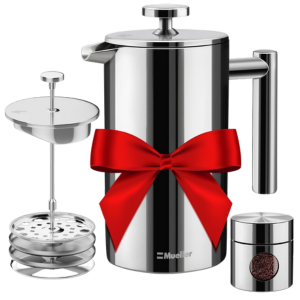
This 34 oz French press impressed us with its thoughtful design. The dual-walled stainless steel construction maintains optimal brewing temperature better than glass models. However, we recommend transferring the coffee to a separate container after brewing to prevent over-extraction.
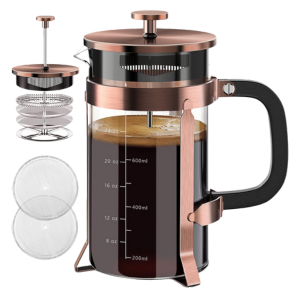
Available in both 34 oz and 21 oz sizes, this model combines durability with style. The borosilicate glass provides excellent heat retention during brewing, while the stainless steel frame adds protection. Our tests confirm it’s dishwasher safe, and its popularity is reflected in thousands of positive customer reviews.
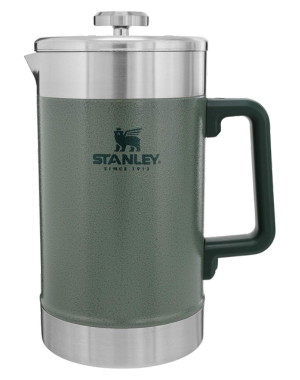
The Stanley 48oz French Press stands out in our testing lineup with its generous 6-cup capacity. What makes this brewer particularly interesting is its innovative single-piece construction. The dual-walled stainless steel design lives up to its “Stay-Hot” promise, though we should note an important brewing tip: while heat retention is brilliant during the brewing process, we strongly advise against leaving your coffee sitting with the grounds. Extended contact time leads to over-extraction and a marked decline in flavour quality.
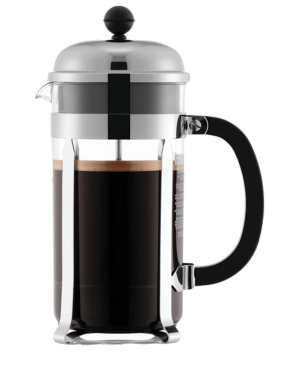
Here’s a French Press that consistently ranks among our most recommended brewers. The Chambord combines a robust stainless steel frame with a crystal-clear borosilicate glass carafe. While its design dates back to 1950s France, paying homage to the magnificent Château de Chambord, the current model maintains those classic lines while incorporating modern manufacturing standards.
Our testing revealed an important care tip: while the chrome and matte versions are fully dishwasher-safe, other colour variants require hand-washing of the frame and lid. The Portuguese manufacturing ensures consistent European quality standards that we’ve come to expect from this trusted brand.
During our extensive testing of budget espresso machines, we’ve discovered that while £100 won’t buy you café-quality equipment, it can still deliver satisfying results for casual coffee enthusiasts. These machines typically feature pressurised portafilter baskets, which help compensate for less precise grinding or pre-ground coffee.
We’ve found that the key to getting the best from these budget machines lies in the coffee selection. Our testing shows that medium to dark espresso roasts from quality small-batch roasters yield the most satisfying results. Light roasts proved challenging to extract properly at this price point, so we recommend sticking with fuller-bodied options.
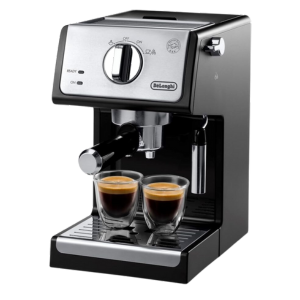
After thorough testing, we can confirm this entry-level espresso machine delivers basic espresso-making capabilities with a straightforward approach. The machine includes essential components: a pump system, thermoblock heater, portafilter with pressurised baskets, water reservoir, and drip tray.
Our technical assessment revealed some marketing claims that need clarification. The “15-bar professional pressure” specification is particularly misleading – professional machines typically operate at 9 bars or less for optimal extraction. Higher pressure doesn’t equate to better coffee, despite what marketing materials might suggest.
For ESE pod users, this machine accepts these coffee pods (not Nespresso or K-cups), which come as pre-measured ground coffee in filter paper.
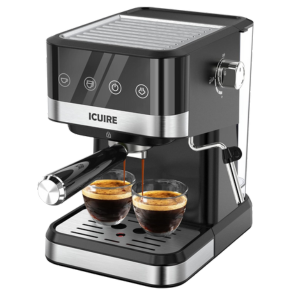
Our testing of the ICUIRE revealed a more contemporary design approach compared to the De’Longhi, featuring a larger water tank and touchscreen interface. However, we need to address some marketing claims. The “professional steam wand” is actually a Panarello-style frother – a beginner-friendly design that incorporates air through side vents, rather than the single or multi-hole tips found on commercial machines.
For milk drink enthusiasts working within a tight budget, this machine can produce acceptable results. Advanced users can remove the Panarello sleeve to access the steam pipe beneath for more control over milk texturing.
Through our extensive testing experience, we’ve found that optimal spending depends on three key factors: your coffee preferences, palate sensitivity, and desired features. Espresso enthusiasts with developed palates might need to invest significantly more than the machines discussed here to achieve their desired results.
Our comparative testing shows that value doesn’t always correlate with price. The worth of a pricier machine depends entirely on whether its specific features match your needs. Take automatic espresso machines, for instance – our analysis reveals that many premium models use similar internal components to their mid-range counterparts, so spending more doesn’t necessarily guarantee better coffee quality.
Our research indicates clear distinctions between price brackets. While sub-£100 models share many similarities, SCA-certified machines (typically £200+) offer superior brewing precision. Among budget options, we particularly recommend models with thermal carafes over those with glass carafes and hot plates, based on better temperature stability and taste preservation.
Through blind taste testing, we’ve found that price doesn’t directly correlate with taste improvement. The relationship between cost and quality isn’t linear – doubling your budget won’t necessarily double your coffee quality. Different users have varying sensitivity to taste differences, making this a highly personal consideration.
Our testing consistently proves that excellent coffee is possible with modest equipment if you prioritise quality beans. Fresh, well-roasted coffee from reputable specialty roasters can produce wonderful results across price points. However, remember that investment decisions should consider factors beyond taste, including durability, convenience, and specific brewing requirements.
© 2025 Caffeinated Gear.